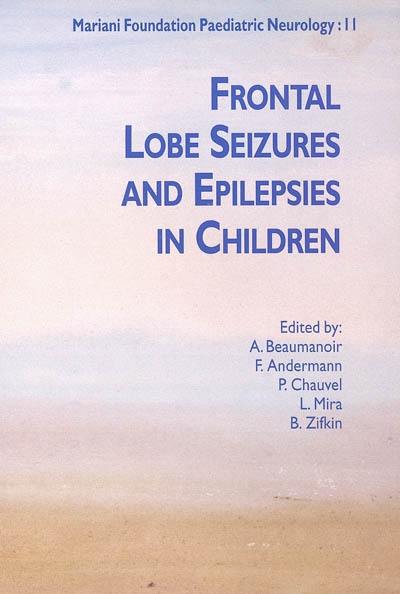
Fiche technique
Format : Broché
Nb de pages : VI-230 pages
Poids : 610 g
Dimensions : 18cm X 25cm
EAN : 9782742004836
Frontal lobe seizures and epilepsies in children
Quatrième de couverture
Frontal seizures and epilepsies in children is a comprehensive international review of basic and clinical research following the Mariani Foundation Colloquium on frontal lobe epilepsy in childhood and adolescence held at the Milan State University. Distinguished authors discuss advances in neurogenetics, neuropsychology and imaging. Autosomal dominant frontal lobe epilepsies and their relations to ion channel dysfunction, and noninvasive exploration of frontal lobe function in humans and non-human primates receive particular attention.
This book describes clinical, electroencephalographic and neuroimaging patterns of frontal lobe epilepsy in detail and reviews advances in medical and surgical treatment.
Frontal lobe epilepsy arises in so large and complex a structure that, not surprisingly, frontal lobe seizures can develop in any of several brain areas and may spread over different pathways with clinical manifestations ranging from the subtle to the obvious in children and adults. Frontal lobe seizures and epilepsies in children devotes several chapters to the central role of frontal lobe maturation in behaviour and cognitive and linguistic development, and to the disorders of frontal lobe function that may occur in frontal lobe epilepsies in the paediatric age group. Many of these are present in well-known epileptic disorders of particular interest to paediatric neurologists such as the Lennox-Gastaut syndrome, and the relations between these and recent advances in understanding frontal lobe epilepsies are also explored.
This latest volume in the Mariani Foundation Paediatric Neurology series discusses frontal lobe epilepsy and its associated disturbances of brain structure and function in all their complexity. It will be useful and stimulating reading for paediatric and adult epilepsy specialists, psychiatrists, neuropsychologists and other behavioural scientists, and research workers in epileptology.





